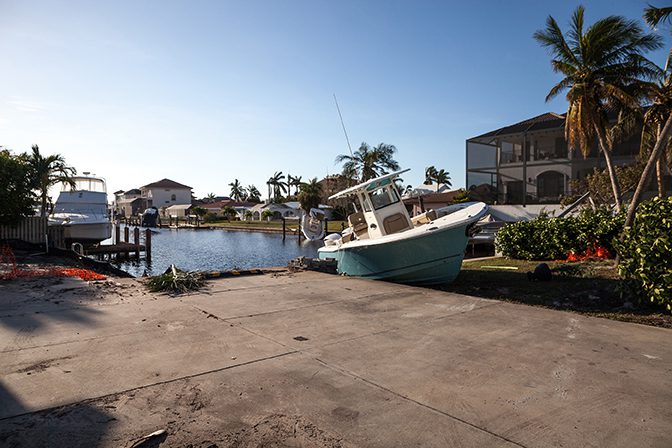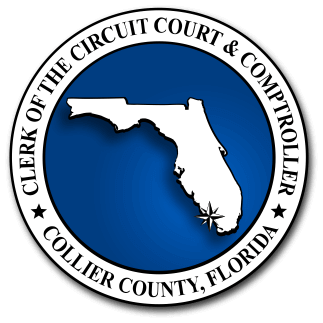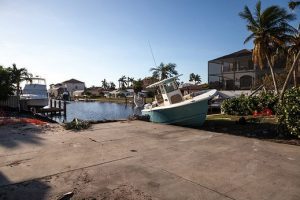
Residents should be alert to scammers offering storm-related repairs or tree removal services, promising emergency grant funds, or alleging charitable intentions in the aftermath of Hurricane Ian. Natural disasters create opportunities for fraud by scammers using phone, text, mail, email, and even door-to-door methods to target affected residents.
- Officials with government disaster assistance agencies do not call or text asking for financial account information, and there is no fee required to apply for or get disaster assistance. Remember that phone scams often use deliberately false information transmitted to your caller ID display to disguise their identity or make the call appear to be official.
If someone calls claiming to be a government official, you should take their phone number if available, end the call and verify the number listed on that government agency’s official website. Never reveal any personal information unless you’ve confirmed you’re dealing with a legitimate official. Workers and agents who knock on doors of residences are required to carry official identification and show it upon request, and they may not ask for or accept money. Applications for FEMA relief programs are free and can be accessed at DisasterAssistance.gov or by calling 1(800) 621-FEMA.
- If you get a phone call about an insurance claim or policy, don’t give out any personal information or agree to any payment until you can independently verify that the call is legitimate. If the caller says they’re from your insurance company, hang up and contact your agent or the company directly using the number on your account statement. Have an insurance company evaluate damage before arranging repairs to ensure that the work will be covered under a policy. Policyholders with the National Flood Insurance Program (NFIP Direct) can call 1-800-638-6620 or visit gov.
- Contractors and home improvement companies may also call claiming to be partners with your insurance provider, or contractors may come to your door to offer services:
- Never give policy numbers, coverage details, or other personal information out to companies until you have vetted the contractor and are ready to sign a contract. Insist on a written contract that addresses all terms agreed upon.
- Be wary of anyone who approaches you unsolicited or says they can conduct a “free” inspection or perform repairs at a discount with leftover supplies from another job.
- Hire only licensed professionals who have a solid reputation, and get itemized estimates on bids or repairs, be sure to check with your insurer PRIOR to contracting for services, to verify your coverage and policy requirements.
- Beware of contractors asking for prepayment or large deposits. Make checks payable to a company, not to an individual or to “Cash.”
- Make sure the contractor is licensed, insured and bonded with reputable agencies.
- Insist on releases of any liens that could be placed on the property from all subcontractors prior to making final payments.
- Door-to-door solicitations in Collier County are usually required to have a Home Solicitation Sales Permit, issued by the Clerk’s office (Recording forms), ask for this permit.
- Under Florida Statute, unlicensed persons who perform work during a declared State of Emergency are committing a third-degree felony. Verify that the contractor has a license for the type of work you wish to have performed, or a Temporary Emergency Restricted Certificate issued by Collier County Contractor Licensing (Collier building forms).
- Ask the alleged contractor for their name, license number, insurance certificate and bonding information, which can be verified at com. If you have questions or wish to report unlicensed activity, contact Collier County Contractor Licensing at (239) 252-2431 or Code Enforcement Complaint.
- Hire a contractor with a license specific to the type of work that you wish to have performed. For example, roof repairs may only be performed by a licensed roofing contractor.
- Beware of people who claim that you will save money if you do not obtain a permit. Most repair work requires a permit, which enforces compliance with building codes. Inspections of completed work may be required to close out a permit.
- A permit is not required for emergency storm mitigation that prevents injury, loss of life, imminent structural collapse, or other damage to the structure or its contents. Examples include roof tarping, water removal, boarding up openings, and securing pool barriers.
- Notices of Commencement of improvements in Collier County are recorded with the Clerk’s office (Recording Information).
- Water mains and personal wells can be affected during hurricanes, and dishonest companies may insist upon pricey tests to determine water safety. Avoid falling victim by following these tips:
- If someone claims to be a representative of a city, county or utility provider needing to inspect a water line or well, ask for proof of identification.
- Check for water safety alerts as provided by local media and utility providers, such as: Alert For All Private Well Owners in Collier. Seek advice from the state health departments to determine what tests should be performed and to help find certified testers nearby. Private Well Testing (floridahealth.gov)
- Consumers should also be aware of scammers posing as representatives of charities seeking donations for disaster relief. There are several steps you can take to protect yourself from this fraud:
- Donate to trusted, well-known charities. Beware of scammers who create fake charities during natural disasters. Always verify a charity’s legitimacy through its official website. Contact the Florida Department of Agriculture and Consumer Services at gov Charities or 1(800) HELP-FLA to check the legitimacy of a charity, or to see if there are any complaints recorded.
- Verify all phone numbers for charities. If you need to contact a charity by phone, check the charity’s official website to see if the number you have is legitimate. If you’re using text-to-donate, check with the charity to ensure the number is legitimate before donating.
- Do not open suspicious emails. If you receive a suspicious email requesting donations or other assistance, do not click on any links or open any attachments, as scammers regularly use email for phishing attacks and to spread malware.
- Verify information in social media posts. Double-check any solicitation for charitable donations before you give. Crowd-funding websites often host individual requests for help, but they are not always vetted by the site or other sources.
- Anyone who suspects price gouging can report it to the Florida Attorney General’s Office by visiting com or calling 1(866) 9NO-SCAM.
- The Clerk’s Office of Inspector General is dedicated to preventing, detecting, and reporting on fraudulent activities related to Collier governmental operations or programs, and fraudulent filings made through the Clerk’s office. Contact us at 1-844-253-7544 (844-ClerkIG), or locally at 23-252-8412, or visit our website at Reporting Fraud, Waste, and Abuse – Collier Clerk of the Circuit Court & Comptroller. We are not authorized to investigate private or personal matters unrelated to County government, the Sheriff’s Office and other agencies noted are able to assist in illegal activities in Collier County, and there are numerous agencies available as noted above to assist with particular issues.

